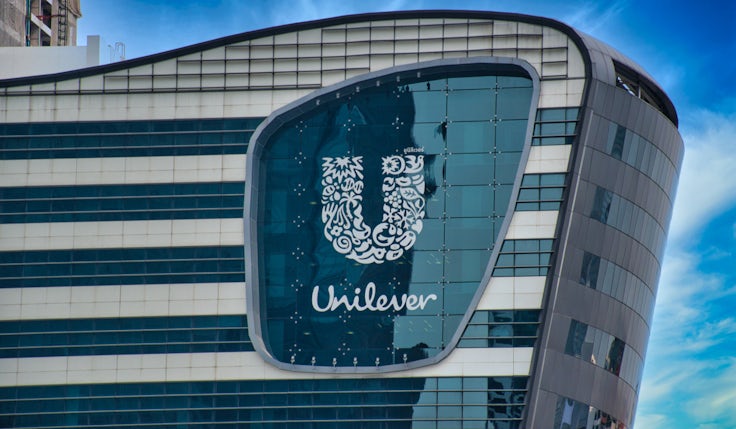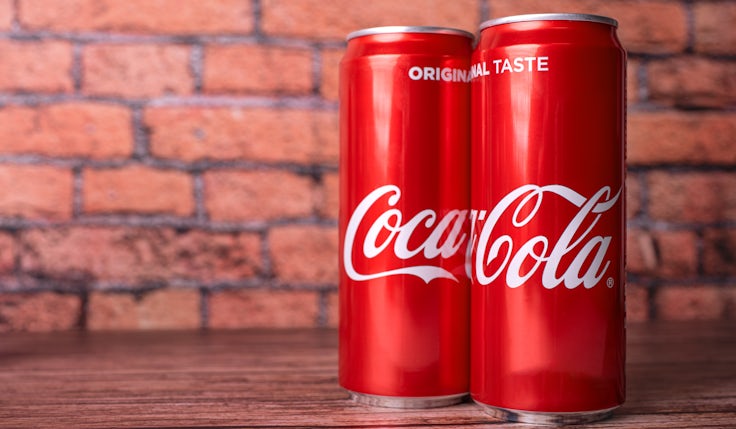Unilever CEO: More focused business is delivering ‘improved’ growth
Unilever is aiming to grow its brands through innovation that “scale and build categories”, rather than simply delivering “new news”.
 Unilever’s CEO Hein Schumacher says the business is becoming “simpler, better and more impactful” after it grew volume sales in the first quarter of its financial year.
Unilever’s CEO Hein Schumacher says the business is becoming “simpler, better and more impactful” after it grew volume sales in the first quarter of its financial year.
In the quarter, the business grew underlying sales by 4.4% to generate €15bn (£12.9bn) in turnover, and grew volumes by 2.2%. Schumacher described the performance as “improved” but indicated there was still work to do. He began as CEO in July and has pledged to deliver “faster growth” and a “more focused and productive” organisation.
He set out a Growth Action Plan for the FMCG giant, designed to make it more competitive.
“This is a plan with three elements to deliver faster growth, a more focused and productive way of operating, and a sharper performance edge,” he said, speaking to investors today (25 April). “And all this with the goal of ensuring that in everything we do, Unilever is simpler, better and more impactful.”
We want innovations that can scale and build category value over years, not just a constant churn of new news that doesn’t really shift the dial.
Hein Schumacher, Unilever
That pursuit of faster growth has seen Unilever focus on what it terms its “power brands” which account for around 75% of its turnover. The business said the power brands led growth in the quarter, growing sales by 6.1%, with a 3.8% increase in volume sales.
Speaking to investors today, Schumacher said the business isn’t “neglecting” its brands outside of the power brand portfolio, but that the focus remains on the latter. In search of its mission “to do fewer things better and with greater impact”, the business also announced its intention to separate its ice cream business, something that Schumacher said makes “good strategic sense”, both for Unilever itself and its ice cream brands.
Another aspect of the CEO’s plan to drive growth in Unilever is focused innovation.
“We’re talking about developing the market and category growth on bigger and better and fewer innovations,” he said.
‘We have work to do’: Unilever outlines plan to tackle ‘unacceptable’ competitiveness
The company is developing its multi-year innovation pipeline. It is already seeing success and “incremental” growth from innovation, he claimed. He cited examples on Vaseline and Persil.
“[Unilever is] tapping into our R&D expertise with the launch Persil’s ‘15 Minute Wonder Wash’, which we expect to create a new segment in the market by tapping into changing laundry habits,” Schumacher said.
“We want innovations that can scale and build category value over years, not just a constant churn of new news that doesn’t really shift the dial,” he added.
Unilever is also aiming to deliver faster growth through its execution. The business has conducted “granular brand assessments” across products covering around a third of its turnover, he said, and expects to complete this across half of its portfolio by May, to ensure these products are delivering “unmissable superiority”.
‘Doubling down’ not ‘watering down’ sustainability
Last week, Unilever announced changes to its environmental and social commitments. Where it had previously pledged to halve its use of virgin plastics by 2025, it is now aiming for a reduction of a third by 2026.
It also moved away from its pledge to pay direct suppliers a living wage by 2030, instead proposing fair pay for suppliers accounting for half its annual spend on goods and services by 2026.
“Let me be clear, we are doubling down, not watering down,” Schumacher said. “Doubling down in those areas that most materially impacted business and where a more focused approach will enable us to drive real change at scale.”
During the investors call, Schumacher was asked whether the decision to tweak its sustainability commitments was a signal that pursuing such initiatives had been more costly than previously thought.
“Our renewed focus and urgency and drive for systemic change was not a result of saying, ‘hey, you know, this is too high of an investment, or we cannot bear the cost’,” he said. “No, it was a deliberate choice to drive performance in ESG.”







